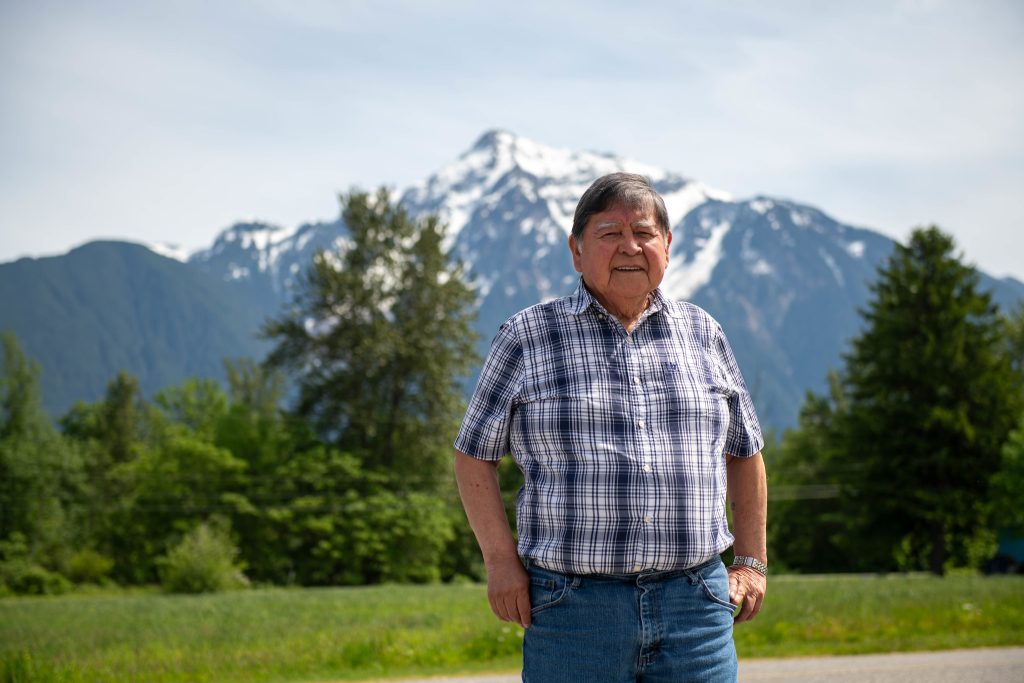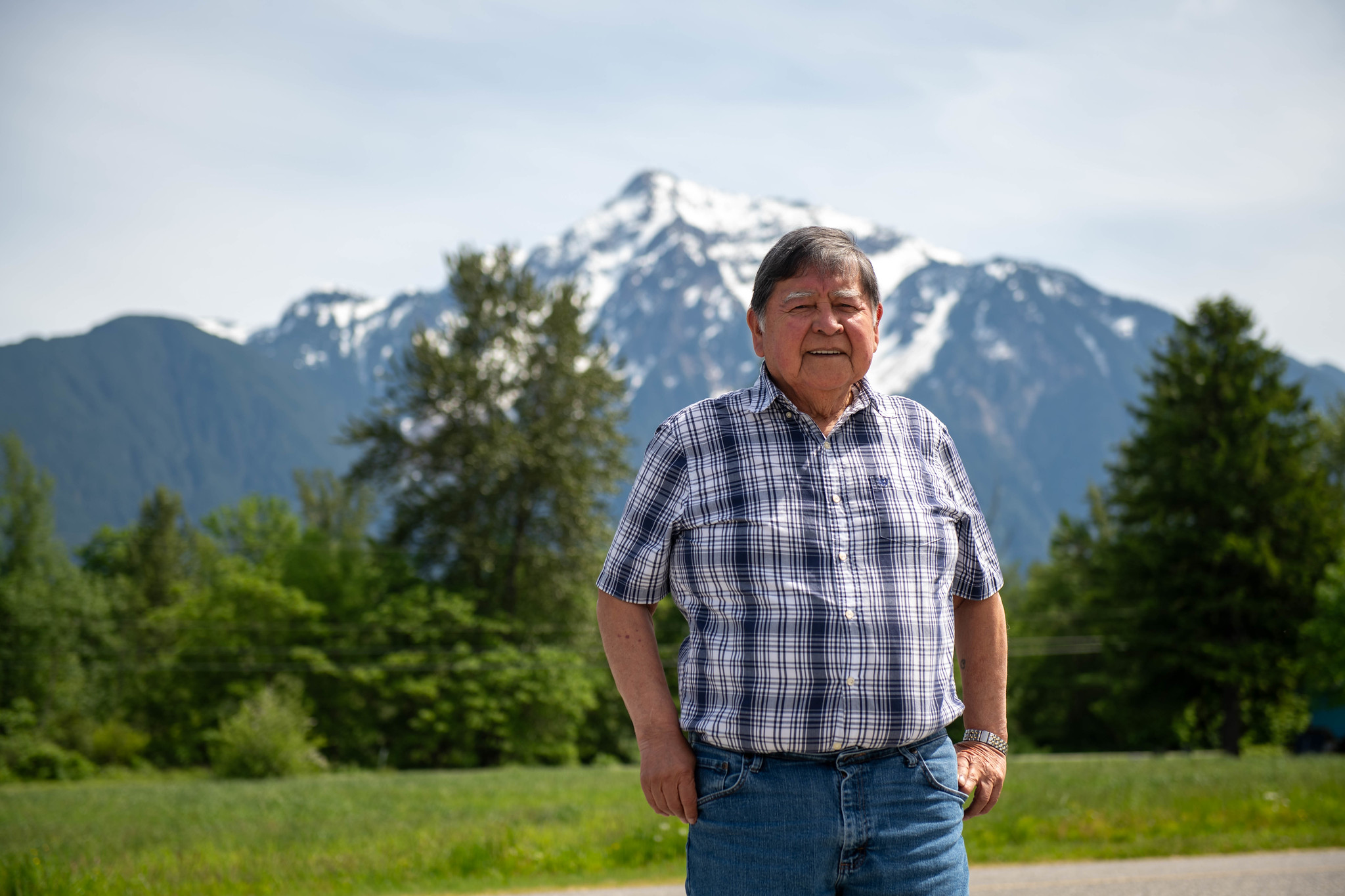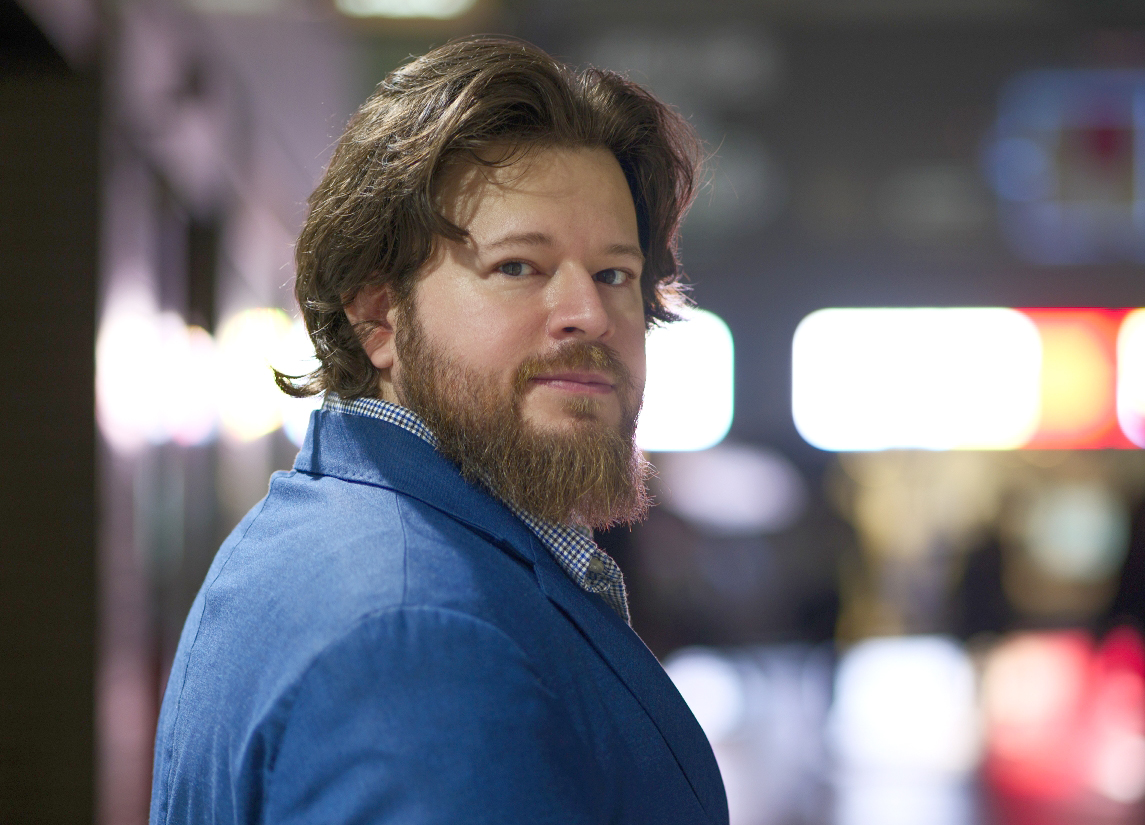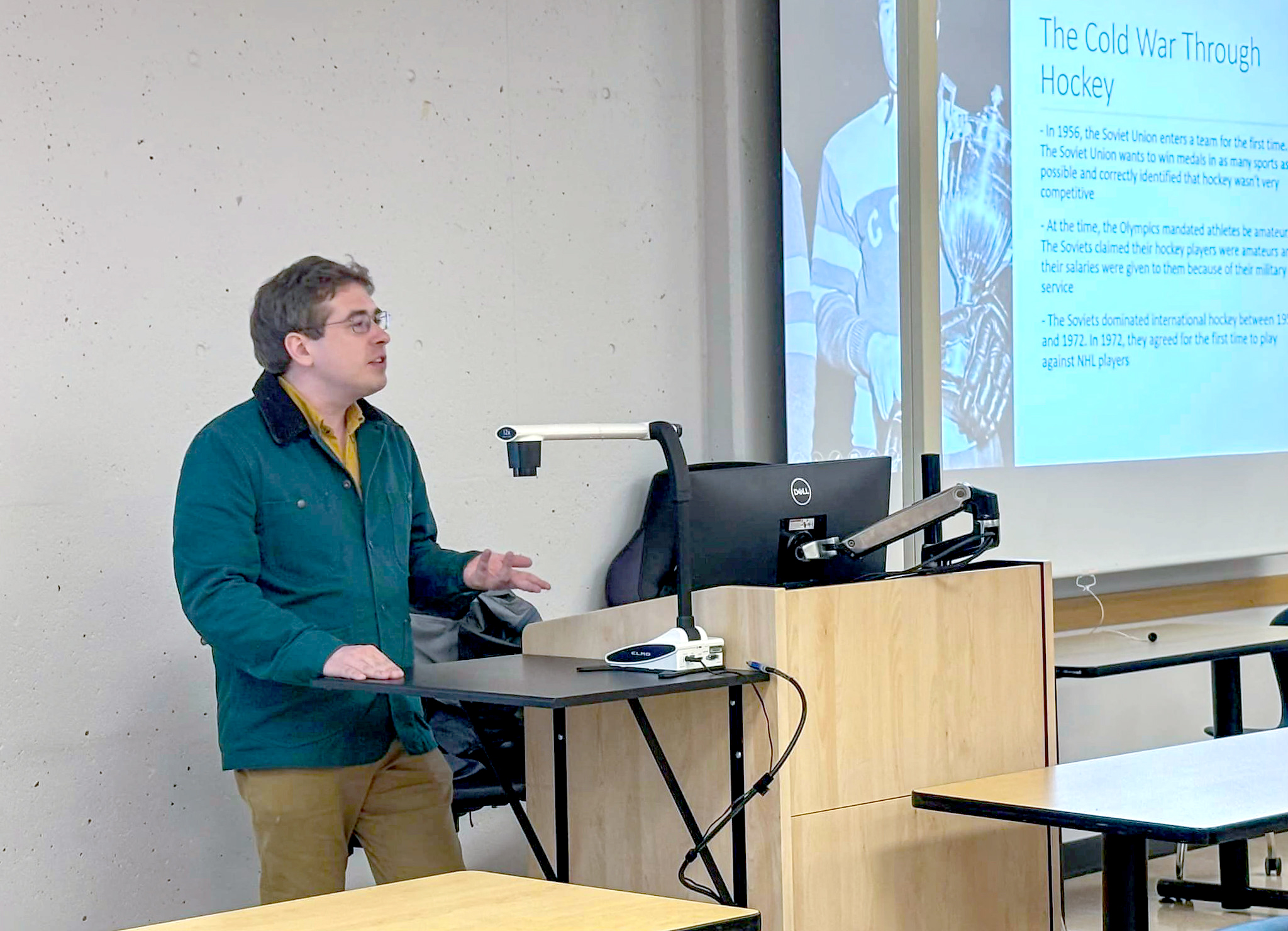Honorary degree 2025 — Kat Pennier has spent a lifetime advocating for Indigenous rights
 Hi:olemtel Clarence Pennier, known to most people as Kat, has devoted his life to fighting for equity for Indigenous people in general, and the Stó:lō people in particular.
Hi:olemtel Clarence Pennier, known to most people as Kat, has devoted his life to fighting for equity for Indigenous people in general, and the Stó:lō people in particular.
Land rights, Aboriginal rights, education, and reconciliation are among the causes he has advocated for through a long list of formal roles, jobs, and projects. As he works to build bridges between the Stó:lō and the settler community, Kat encourages education as a way to enhance understanding and cooperation.
“Anyone who has been involved even tangentially in the struggle to define, defend, and implement Indigenous rights and title will be familiar with the work and legacy of Kat,” says his friend and frequent collaborator Keith Carlson, Director of the Peace and Reconciliation Centre at the University of the Fraser Valley. “He has devoted his life to the goal of building a world where Stó:lō people will be a strong self-governing community in a respectful partnership with Canada with a meaningful role in co-managing lands and resources.”
In recognition of his life’s work, UFV is presenting Kat with an honorary Doctor of Laws degree at its June 11 morning Convocation ceremony at 9:30 am in the UFV Athletic Centre.
As a young man starting out as an accounting clerk, Kat was immersed in Indigenous discourse about land rights and title issues when working for the Union of BC Indian Chiefs (UBCIC) in the early 1970s.
“I found myself sitting and listening to the chiefs and Elders talk and learning a lot about the issues,” Kat recalls. His interest led to him serving one term as vice-president of the UBCIC.
Then he looked homeward, joining the staff at the newly created Coqualeetza Cultural Education Training Centre on the grounds of the former residential school in Chilliwack. In 1976 he became executive director of the centre.
In the 1980s Kat served as the elected Chief of his home community of Sq’éwlets, located at the confluence of the Fraser and Harrison Rivers, while also working for an Indigenous organization overseeing program delivery.
That was followed by a stint travelling across Canada as a Stó:lō representative as part of the consultation process leading to the repatriation of the Canadian Constitution in 1982.
In 1986 he was appointed as chair for the Stó:lō Tribal Council and also took on the role of director of Aboriginal rights and title.
Throughout his lengthy career working to improve the lives and increase the autonomy of Indigenous people, Kat came to see the importance of creating a balanced relationship between Indigenous people and settler Canadians.
Under his leadership in various roles, Kat guided research projects about Stó:lō history, traditional governance and practices, the wartime experiences of Stó:lō veterans, and the significance of transformer stones in Stó:lō culture, among many other topics.
He encouraged the development of educational resources for the K-12 system so that students could learn about Stó:lō culture and history. The award-winning A Stó:lō Coast Salish Historical Atlas and other books inspired similar projects in other Indigenous communities.
Kat also encouraged collaboration with educational institutions, working with faculty and student researchers from various universities, including UFV. He has facilitated partnerships that foster reconciliation, such as workshops for religious leaders and other local influencers. He asked residential school survivors to share their traumatic stories with these audiences to promote understanding, leading the way by sharing his own story of surviving physical, emotional, and sexual abuse at schools in Mission and Kamloops.
“Several of my siblings were also abused and we all used alcohol to cope,” Kat recalls. “They took their stories to the grave with them, but I got help through counselling and a healing journey and am here to share my story.”
Kat worked with UFV on an Indigenization plan in the mid-2000s and is now community chair of the steering committee for the university’s Peace and Reconciliation Centre. In this role he has helped establish the Xwelítem Siyáya: Allyship and Reconciliation Building program, which offers participants from the community a mixture of presentations, workshops, and hands-on land-based learning opportunities, guided by Stó:lō community experts. The goal of the program is to help participants develop the knowledge and empathy necessary to become effective and respectful allies to local Indigenous communities.
Now aged 80, Kat still goes to the office at the Stó:lō Tribal Council four days a week. He was appointed Grand Chief of the Stó:lō Nation in 1995 and remains on the Grand Chief’s Council with other leaders who have held the title. He continues to serve as a mentor to new Stó:lō leaders.
“I am always trying to share some of what I’ve learned with the next generation.”
Kat encourages all Stó:lō youth and young people in general to pursue education.
“We need to be able to compete in the modern world and look after our families,” he notes. “It’s important for students to think about what they want to do and how to achieve it, even if you end up being involved in something else in the end.”
As for his own accomplishments, Kat reflects that he’s done all right.
“We all have a purpose. Mine was to learn about land rights and titles and share that knowledge. It’s important for people to understand the land and why we do what we do to protect it so that it is there for future generations.”





